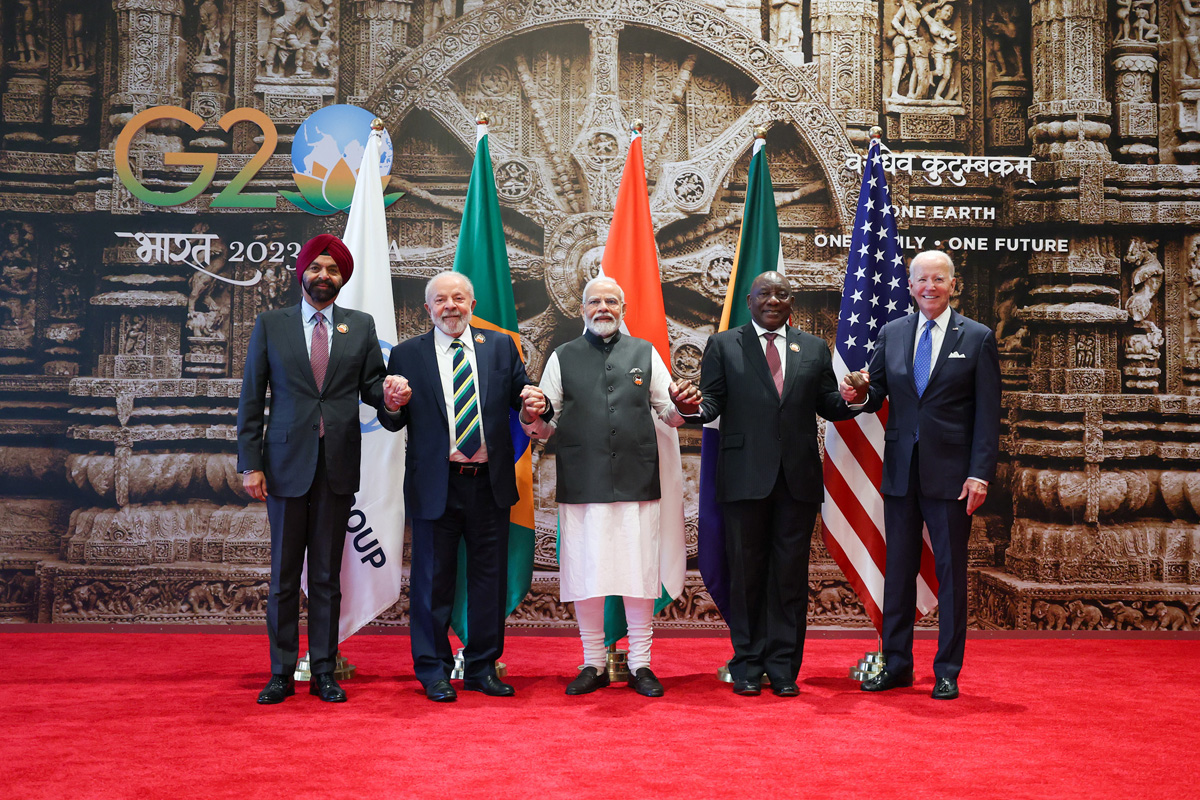At the G20 summit, by most accounts an unqualified success for host India, the world witnessed a diplomatic tightrope act, as the United States and its European allies chose to compromise on the language related to the Ukraine war in the Leaders’ Declaration. In the lead-up to the summit, Ukraine’s supporters expected that the West would take a strong stance and directly call out Russia for its aggression. However, when the joint statement was released, it refrained from mentioning Russia by name.
Instead, it issued a general call against war, decried the human suffering that accompanies conflict and emphasised the importance of respecting the territorial integrity of countries. While this indirect approach left some observers questioning the West’s commitment to confronting Russia, there is another perspective worth exploring. One could argue that the decision to scale down the language of the joint statement was influenced by several factors, one of which certainly was the strenuous effort put in by Indian diplo- mats to avoid an impasse. The nuances of this diplomatic manoeuvre lie in the broader context of the G20 summit and the evolving global geopolitical landscape.
Advertisement
First, the G20 summit serves as a critical platform for world leaders to address complex global challenges. In this context, the focus was not solely on the Ukraine crisis but also on pressing issues like climate change, debt sustainability and the elevation of the African Union as a full G20 member. The West, led by the USA, had to balance its desire to confront Russia with the need to maintain productive dialogue on these matters. Secondly, the decision to refrain from naming Russia in the declaration can be seen as an attempt to keep the lines of communication open. Diplomacy often involves finding common ground and avoiding public confrontations that could lead to further escalation. By issuing a general call against war and suffering, the West left room for behind-the-scenes negotiations and diplomatic efforts to address the Ukraine crisis.
Moreover, it is important to acknowledge that international diplomacy is a complex dance of competing interests and alliances. The West, particularly the USA, has been actively seeking to strengthen its ties with emerging powers like India. India is seen as a rising power with the potential to balance China’s influence in the region. Given India’s strategic importance, the West would have been inclined to accommodate India’s preferences during the summit to strengthen the partnership. While the joint statement’s language on Ukraine may have disappointed those in Kyiv, it also presented an opportunity for the West to align more closely with major democracies in the Global South, including India, South Africa and Brazil.
These nations play a pivotal role in shaping global responses to conflicts like the one in Ukraine. By avoiding a public showdown, the West made the best of the situation confronting it, especially when it had an economic corridor to negotiate and a biofuel alliance to stitch up, both of which had India playing a pivotal role. Overall, New Delhi has much to be chuffed about.









